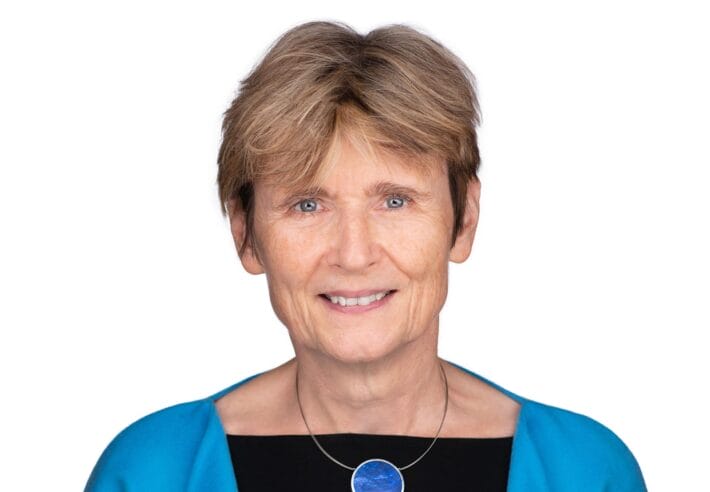
Marianne Bronner receives the Vilcek Prize in Biomedical Science for her career research on neural crest stem cells and their role in the development of the peripheral nervous system, heart, and craniofacial skeleton in vertebrate organisms.
Born in Hungary; Bronner and her family immigrated to the United States when she was 4 years old. The family moved with the goal of pursuing a life free from the repressive communist regime. “We came to this country with little more than the clothes on our backs,” says Bronner. “I never take for granted the opportunities that have come my way, enabling me to get an excellent education in a free country and have the freedom to pursue my dreams to be a scientist.”

Enthusiastic about physics from a young age, Bronner’s passion for developmental biology was piqued when she learned about neural crest stem cells in a graduate biology course. “I was fascinated by the fact that the early nervous system looks so homogeneous and yet goes on to form so many different types of neurons and glia. I had an epiphany and realized that was the scientific question I wanted to pursue,”
Bronner’s research has been instrumental in advancing understanding of neural crest cells. At Caltech, she pioneered the use of novel lineage tracing tools to analyze the developmental potential of neural crest cells in vivo.

Her work has provided crucial insights into the mechanisms of cell migration, differentiation, and the genetic regulation underlying these processes. Her studies have shaped how scientists understand neural crest cells and development and their implications for congenital disorders, cancer metastasis, and tissue regeneration.
Bronner’s recent work has revealed that cardiac neural crest cells play a role in the repair and regeneration mechanisms of adult hearts in some species, including humans. This has opened new investigations for scientists to explore how persistent neural crest stem cells may be exploited for therapeutic purposes.
Awards & Accomplishments
- Shirley M. Malcolm Prize for Excellence in Mentoring, Caltech (2023)
- Ross G. Harrison Award, International Society of Developmental Biology (2022)
- National Academy of Sciences (NAS) (2015)
- Edwin G. Conklin Medal, Society for Developmental Biology Award (2013)
- Women in Cell Biology Award, American Society of Cell Biology (ASCB) (2012)
- Fellow of the American Academy of Arts and Sciences (AAAS) (2009)
- Javits Award, National Institute of Neurological Disorders and Stroke (2002-2009)
Follow Marianne Bronner
Jury Members
2025 Vilcek Prize in Biomedical Science
Laurie Dempsey
Dan Littman
Luciano Marraffini
Alejandro Sánchez-Alvarado
Mikhail Shapiro
Joanna Wysocka
Xiaowei Zhuang
Related Prize Recipients
Ruth Lehmann

Silvi Rouskin

Xiaowei Zhuang

You may also be interested in
Marianne Bronner: Advancing Stem Cell Research and Equity in Science

Vilcek Foundation Awards $250,000 to Immigrants in Biomedical Science

Katalin Karikó: The sacrifices and successes of immigrant scientists
